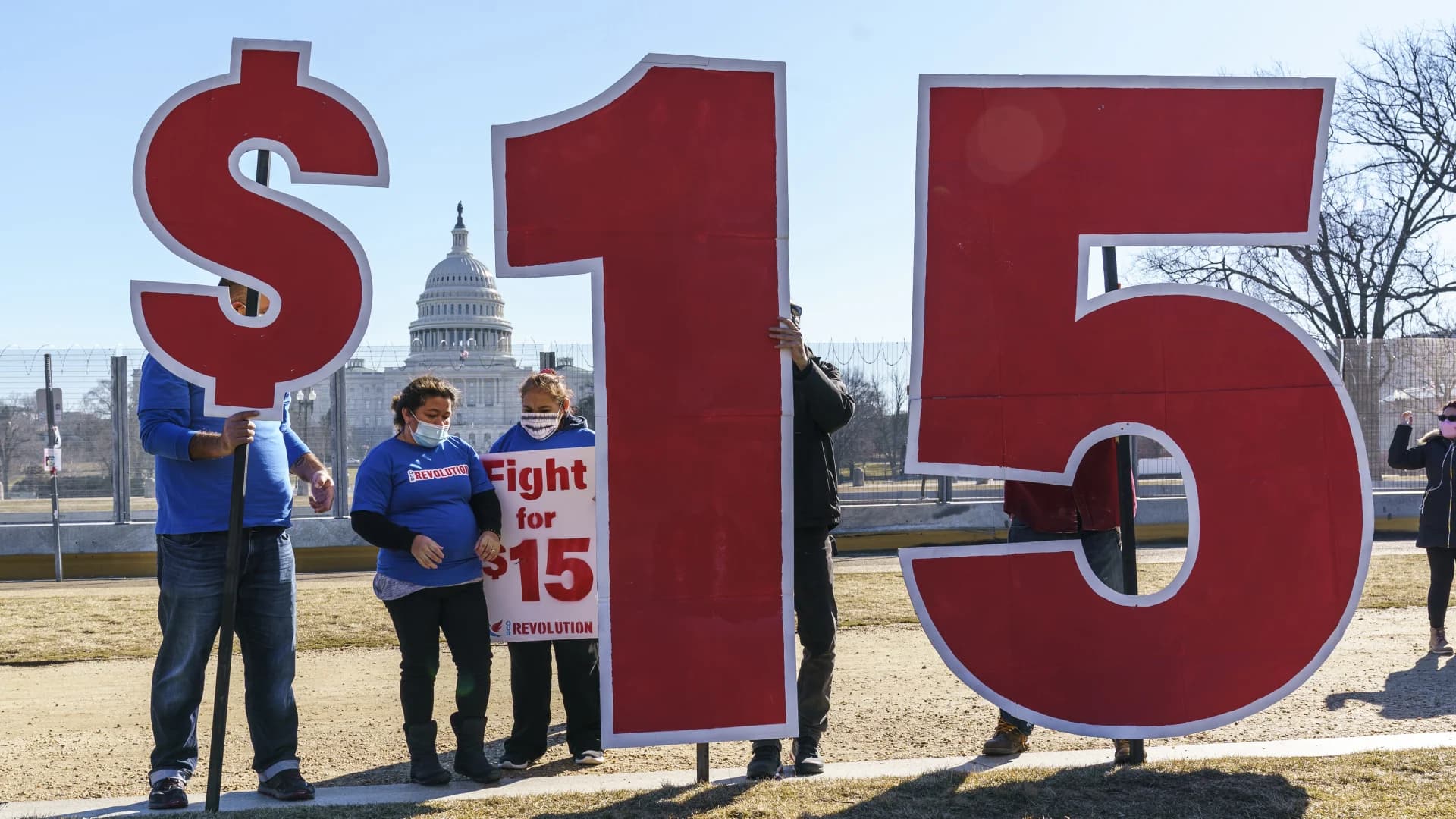More Stories

The Senate parliamentarian has dealt a potentially lethal blow to Democrats’ drive to hike the minimum wage, deciding that the cherished progressive goal must fall from a massive COVID-19 relief bill the party is trying to speed through Congress, Democratic Senate aides said Thursday.
The finding by Elizabeth MacDonough, the chamber’s nonpartisan arbiter of its rules, comes as Democrats prepare for House approval Friday of an initial version of the $1.9 trillion package that still includes the minimum wage boost.
It will force Democrats to make politically painful choices about what to do next on the federal minimum wage, which has long caused internal party rifts.
The Senate aides confirmed the parliamentarian's decision to The Associated Press on condition of anonymity because it hadn't yet been released.
Progressives seeking to maximize Democratic control of the White House and Congress have wanted party leaders to push aggressively on the issue. The proposal would gradually raise the federal minimum wage to $15 over five years, well over the $7.25 in effect since 2009.
But Democratic Sens. Joe Manchin of West Virginia and Kyrsten Sinema of Arizona have voiced opposition to including the minimum wage hike in the relief bill, and other moderates have expressed concerns, too.
That suggests Democrats could well lack the strength they need for it to survive. Democrats control the 50-50 Senate with Vice President Kamala Harris’ tiebreaking vote and can’t lose any of their senators to prevail. Republicans solidly oppose the hike to $15.
Democrats have said they could still pursue a minimum wage boost in free-standing legislation or attach it to legislation expected later this year that is to be aimed at a massive infrastructure program, another Biden priority.
But they'd still face the challenge of garnering 60 Senate votes, a hurdle that has upended Democratic attempts to boost the minimum wage for over a decade.
While Biden supports the increase to $15, the White House seemed to signal reluctance to pursue one rarely used option.
Democrats could choose to bust through decades of Senate precedent, ignore the parliamentarian’s view and keep the minimum wage provision in the bill with their 51 votes. But moves like that are anathema to many Senate traditionalists like Biden, a 36-year veteran of the chamber, and would invite tit-for-tat retaliation by Republicans.
White House chief of staff Ron Klain on Wednesday distanced the administration from the possibility of bypassing the Senate’s usual procedures.
“Certainly, that’s not something we would do,” he told MSNBC host Joy Reid. “We’re going to honor the rules of the Senate and work within that system to get this bill passed.”
Republicans solidly oppose the $15 minimum wage target as an expense that would hurt businesses and cost jobs. They also oppose the overall relief bill, saying it’s too expensive, not targeted enough at people and businesses that most need it and a grab bag of gifts for Democratic allies.
The overall relief bill is Biden’s first legislative priority. It is aimed at combating a year-old pandemic that’s stalled much of the economy, killed half a million Americans and reshaped the daily lives of virtually everyone.
The pandemic relief legislation would provide millions of people with $1,400 direct payments. It contains billions of dollars for vaccines and COVID-19 testing, schools, state and local governments, the ailing restaurant and airline industries and emergency jobless benefits while providing tax breaks to lower earners and families with children.
Democrats are pushing the $1.9 trillion measure through Congress under special rules that will let them avoid a Senate filibuster by Republicans, a tactic that Democrats would need an unattainable 60 votes to defeat.
But those same Senate rules prohibit provisions with only an “incidental” impact on the federal budget because they are chiefly driven by other policy purposes. The parliamentarian decides if provisions pass that test.
(Copyright 2021 The Associated Press. All rights reserved. This material may not be published, broadcast, rewritten or redistributed without permission.)
More from News 12
0:24

Police chase ends with arrest at train station in Southeast
0:47

Pickleball boom continues with major indoor facility in New City
0:32

Manhunt ends as Pleasantville suspect faces arson, assault charges
2:07

STORM WATCH: Gusty downpours this morning in the Hudson Valley
2:07

Thunderbolt 12: Heavy downpours and gusty winds create minor flooding and difficult driving conditions
1:46
